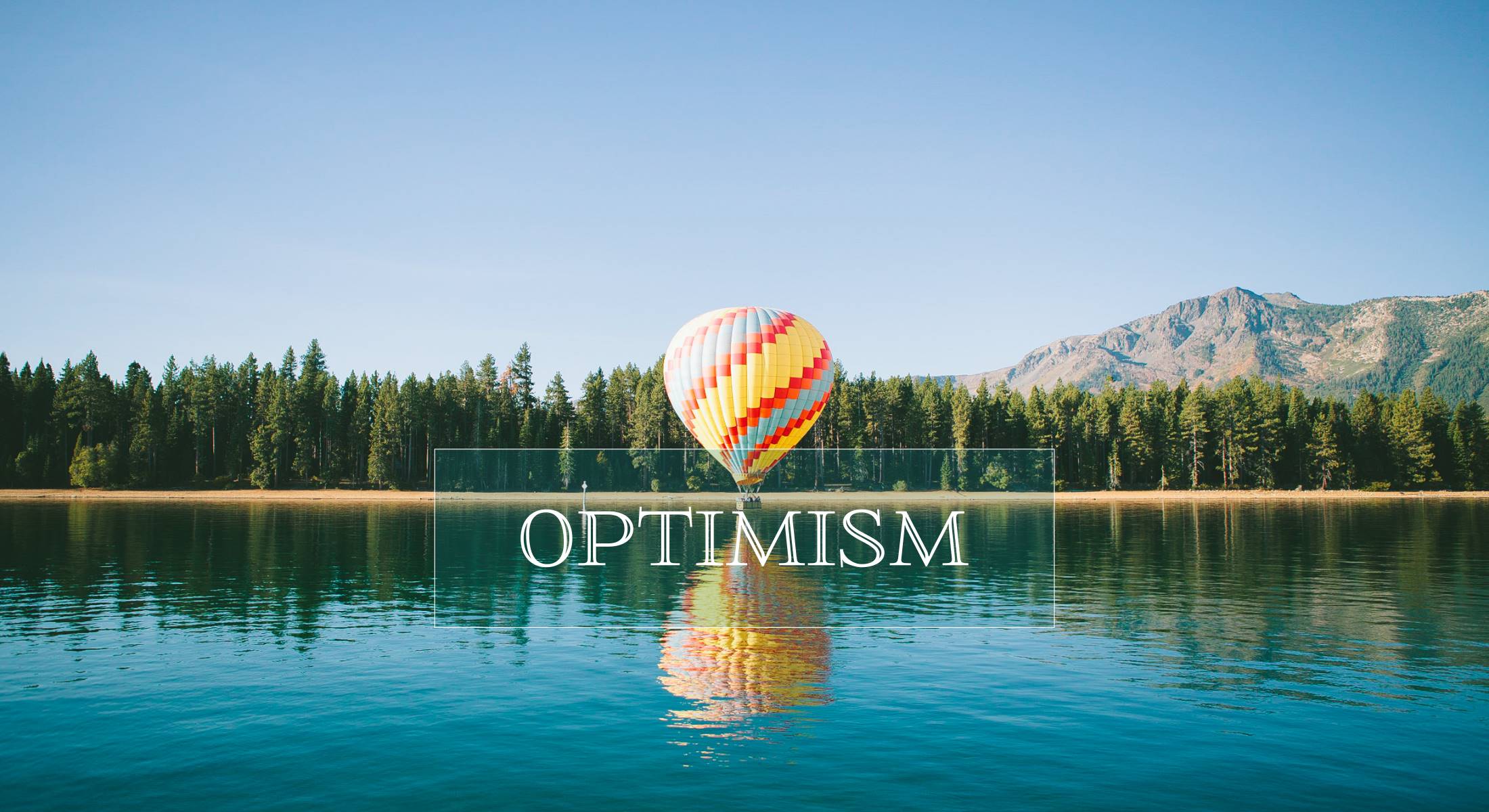
Lifestyle Inspiration, Savvy You5 Fresh Ways To Think About Positivity
A few years ago, I started making compositions with beads. When each arrangement is done, I take photographs and share some of them as wallpaper freebies. [Download Freebies Here]

On one occasion, I chose a floral composition to be the freebie of the month. After I was done tweaking and adjusting it, I tried to think of a good, meaningful caption for it. As I looked at the image, I thought it (along with its cool filter) illustrated how a positive attitude radiates. I saw the radiance of positivity as its ability to inspire the people around us. That was how I ended up writing my first mini-post about positivity.
I have since had cause to think more about what it means to have a positive attitude and how much we all need it. Positivity is like a lens through which we see the world. It affects our experiences, our outlook and these in turn influence how we act. In this way, positivity (or the lack of it) also ‘radiates’ within our individual lives. It is certainly something we need to cultivate and maintain as part of personal development.
This is especially true when you consider that as we grow in life, we will confront new challenges. To do so successfully will require not so much a new positive attitude but a renewed sense of positivity. It takes a while to come to terms with how much the quality of our lives depends on our ability to renew things. We need to renew our minds and bodies, our relationships and their accompanying vows, our faith, our sense of confidence, etc. The same is true of having a positive attitude. We can’t simply take it for granted. It too needs to be renewed as we grow from challenge to challenge.
Since 1985, a lot of research has been conducted on the effect of positivity and the results have inspired many articles and books about the power of positive thinking. Positive thinking has been linked to physical and mental wellbeing in many convincing studies. It has also been linked to resilience and learning.
My favourite description of what positivity does for the human mind was made by James Clear in his article titled “How positive thinking builds your skills, boosts your health, and improves your work.” Drawing on the research of Barbara Fredrickson, he writes about how positivity opens the mind. When our minds are open, many good things happen. Our perception of reality is broader and more nuanced (not strictly black & white), we explore more, we learn more, we develop more ideas and we even express ourselves better.
If you’ve ever had depression or anxiety disorder, you know that this description is accurate.
In this post, I look at 5 aspects of a holistic positive attitude. They are also ways of expressing positivity. As with all good habits, practice makes perfect. Thinking of positivity in these 5 ways can help us make positivity a deep-seated part of our character by showing us how different experiences require different expressions of positivity.
Here are 5 fresh ways to think about positivity!
>>>> 1 <<<<
As Confidence

A ‘can-do’ attitude is a classic expression of positivity. This is positivity expressed as confidence. Confidence is always based on knowledge and well-founded belief. It is this foundation of confidence that makes it the opposite of a Panglossian attitude.
A good illustration of the ‘can-do’ attitude is when a person is confident she will succeed because she knows and has developed her skills. Professionals and experts show this kind of positive attitude all the time.
Before you conclude this aspect of positivity is easy to cultivate, consider that some people have what is known as the ‘Imposter Syndrome‘. This is when a professional lacks confidence in her skills and accomplishments because of fear of being exposed as a fraud. It is a very subtle way in which people can undermine themselves and project far less confidence than they should. The Imposter syndrome has been linked to the confidence gap between men and women, and is a powerful reminder that we need to consciously grow and express confidence in our own abilities.
I think celebrating our accomplishments is a good way to develop this aspect of positivity. We should also recognize other people’s achievements. This is especially true for women because effacing one woman’s accomplishment is often an extension of the tendency of patriarchal society to diminish women in general. So by supporting and celebrating each other, women can grow greater confidence in themselves as individuals.
>>>> 2 <<<<
As Self-Assurance

I think Positivity can also be expressed as self-assurance. When we have an attitude that shows a willingness to try new things and take risks, we are expressing this kind of positivity. Being self-assured and self-confident are related but not quite the same. For me, self-assurance is a deep, grounded belief in one’s own self worth. While our sense of confidence may be hurt by failures and setbacks, our sense of self-assurance should not be. While failing might make us rethink and rephrase our confidence, self-assurance is the belief that those failures do not diminish us as individuals.
Being self-assured is an important aspect of positivity. It makes us more resilient and more open. When we are self-assured, we are less deeply threatened by the uncertainties and pain that are inevitable parts of life.
This dimension of positive thinking is learned starting at an early age. Parents have a lot to do with molding their children’s sense of self-assurance. But even adults should take stock. It’s easy to confuse being confident (in the professional sense) with being self-assured.
I think practicing gratitude and generosity are ways to renew and deepen our sense of self-assurance. When we are grateful, we are reminded of the value of the things we have. Simple and precious things like life, health, family and friends help us keep perspective. And a generous, open spirit is just what we need to be willing to try new things and take risks.
>>>> 3 <<<<
As Optimism

For many, optimism is synonymous with positivity. The ‘glass-half-full’ analogy is an impactful expression of how an optimist views the world. An optimist generally views the world with a sense of positive expectation. When a person sees the proverbial glass as half full, the implication is that it may get fuller still. In contrast, when a person sees the same glass as half-empty, a threat is implied – the threat that there may yet be less and less in the cup.
Optimism and hope are immensely powerful. Elie Wiesel, the holocaust survivor and writer (who recently passed on), captured the power of hope in his works. He advocated what I like to consider a radical form of hope. He said that “… even when it seems hopeless, I INVENT reasons to hope.” His WWII experience in concentration camps taught him this vital lesson.
Losing hope is sometimes a luxury we cannot afford if we truly want to survive. To hold on to life and make the most of it, we need to be hopeful. The positive expectation of hope may be remote and abstract but the mere fact that it is possible (by any chance, no matter how small) is reason to hold out hope.
By drawing on Elie Wiesel’s life, I focus on extreme situations. But even in everyday life, hope and optimism play a vital role. We should take it as a sign of the power of optimism that in psychology, it is considered a character / personality trait. Character traits are those things that influence (some would say determine) how a person behaves. Many psychologists and experts agree that an optimist is more likely to believe in her power to positively influence outcomes than a pessimist.
I think optimism and hope are very deeply connected to what we believe and what we have faith in.Things that enhance our faith in humanity, in our countries, in our cultures, in our families and friends, and ultimately in ourselves, will boost our sense of optimism. I also think that in a very real sense, our experience of optimism is connected to how empowered we feel. So, when we work to empower ourselves and others in our communities, we are also building our sense of optimism.
>>>> 4 <<<<
As Love

Love is many things. In the context of positivity, I like to think of love as a disposition in which we are open to seeing the good and the best in the people we meet. When we think of love in this way, it becomes a very powerful way of expressing and projecting positivity.
This disposition forms the foundation of our respect and tolerance of other people. In a world where signs of hate and hateful acts are increasing, we need more of this kind of positivity.
We express a very positive attitude When we are disposed to recognizing the good in others. This is not to say that we deny the evil human beings are capable of doing. I think what this positive attitude demands is that we recognize the immense good people can do with the right encouragement and support.
This brings a whole new meaning to the idea of being our sister’s keeper. When we see and acknowledge the good in each other, we are encouraging that goodness to thrive.
>>>> 5 <<<<
As Courage

“I learned that courage was not the absence of fear, but the triumph over it.” – Nelson Mandela
This is my favourite definition of Courage. It is a reminder that anyone can be extraordinarily courageous provided she is willing to face her fears. Courage, as this difficult act of consciously rejecting fear, is indeed a powerful positive attitude.
While celebrating progress shows a positive attitude, discussing problems constructively also shows a positive attitude. It shows the courage to get involved where there is need and more importantly, it shows our belief that a solution can be found. This is the kind of positive thinking we need in difficult and uncertain times.
Positivity, expressed as courage, has given us some of the greatest triumphs of humanity. When we look at our fight for independence here in Nigeria, the civil rights struggle in the US, the fight against apatheid in SA, and the struggle against sexism and gender inequality around the world, courage is the common thread.
Equally worthy of note is the fact that some of the greatest failures of humanity can be seen as a lack of courage or will to do what is right.
Leaders need to cultivate courage in the interest of their people. But we all need courage. Everyone needs courage and I cannot think of a better way to grow in courage than by celebrating and emulating the people of courage we know.
Postscript
All these expressions of positivity are related. And honestly, I think having one can be considered a stepping stone to others (in no particular order). I do think that in our career and achievement obsessed societies, we pay way too much attention to positivity expressed as confidence (in the professional sense).
Work is only one aspect of life and while there’s no disputing its importance, we do have to keep things in perspective.
Life will challenge us with situations that require us to show different shades of positive thinking. It could be confidence today and more of self-assurance tommorrow. It could be optimism in general or a spiritual kind of hope. It could be love for humanity or it could be courage in defense of humanity.
I can only hope that as we aspire to have rich and fulfilling lives, we strive to cultivate deep-rooted positivity to guide us all the way.
-
05Aug
12 Ways To Boost Your Self-Competence
Self-competence or personal competence refers to our ability as individuals to understand ourselves, direct our affairs, make decisions that are aligned with our values, and act effectively to achieve...
-
05Aug
5 Fresh Ways To Think About Positivity
Positivity is like a lens through which we see the world. It affects our experiences, our outlook and these in turn influence how we act. In this way, positivity (or the lack of it) also 'radiates' wi...





Sorry, the comment form is closed at this time.